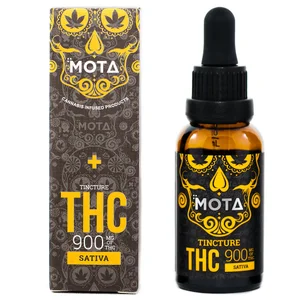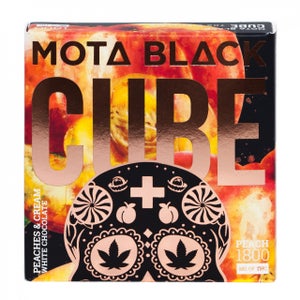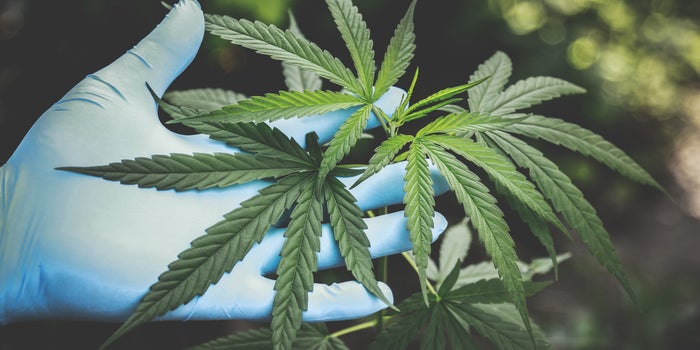Table of Contents
- Understanding Asthma
- Cannabis and Its Components
- Research on Cannabis and Asthma
- Potential Benefits and Risks
- The Future of Cannabis and Asthma Research
- Conclusion
- FAQs
Can cannabis help asthma? In some cases, cannabis’ bronchodilatory properties have helped individuals reduce airway inflammation and breathe better, however, further research is warranted before coming to a conclusion. If you, too, are curious about the potential benefits and risks of using cannabis to manage asthma symptoms, you’ve come to the right place. In this guide, we aim to clear the air and discover the truth about cannabis and its potential role in asthma relief.
Understanding Asthma
Asthma is a chronic respiratory condition characterized by inflammation and narrowing of the airways. This narrowing makes it difficult for individuals to breathe, leading to symptoms such as wheezing, coughing, shortness of breath, and chest tightness. Asthma can be triggered by various factors, including allergens (such as pollen and dust mites), irritants (such as smoke and air pollution), respiratory infections, and physical exertion.
The impact of asthma on individuals’ quality of life cannot be overstated. It can limit their ability to engage in physical activities, disrupt sleep, and cause anxiety about potential asthma attacks. Furthermore, asthma poses a significant burden on healthcare systems worldwide, with frequent hospitalizations and emergency room visits.
To manage asthma effectively, current treatment approaches primarily focus on relieving symptoms and reducing inflammation. Common medications include bronchodilators, which help relax the airway muscles and improve airflow, and corticosteroids, which reduce airway inflammation. While these treatments have proven beneficial for many individuals, there is still a need for alternative or complementary solutions to further enhance asthma management.
Cannabis and Its Components
Cannabis, also known as marijuana, has been used for medicinal purposes for centuries. Its historical usage and potential therapeutic properties have garnered attention in recent years. In this section, we explore cannabis as a medicinal plant and its major active compounds, as well as the potential role of the endocannabinoid system in modulating asthma.
Cannabis as a medicinal plant and its historical usage
Cannabis has a rich history of medicinal use dating back thousands of years. Ancient civilizations recognized its potential therapeutic properties and utilized it for various ailments. Over time, its usage expanded to treat respiratory conditions, including asthma. However, it is important to note that historical usage does not equate to scientific validation, and further research is needed to understand its true potential in asthma management.
The major active compounds in cannabis
Cannabis contains hundreds of chemical compounds, but the two most well-known and studied are delta-9-tetrahydrocannabinol (THC) and cannabidiol (CBD). THC is primarily responsible for the psychoactive effects of cannabis, while CBD does not produce the same psychoactive response. Both compounds have shown potential therapeutic properties and are of interest in medical research.
The Endocannabinoid system and its potential role in Modulating asthma
The endocannabinoid system (ECS) is a complex biological system present in the human body. It consists of endocannabinoids, receptors, and enzymes that play a role in regulating various physiological processes. The ECS has been implicated in modulating inflammation, immune responses, and bronchial smooth muscle tone—factors that are relevant to asthma management. Understanding how cannabis compounds interact with the ECS may provide insights into their potential impact on asthma symptoms.
The anti-inflammatory and bronchodilatory properties of cannabis compounds
Both THC and CBD have demonstrated anti-inflammatory properties in various studies. Inflammation plays a significant role in the development and progression of asthma. By reducing inflammation, cannabis compounds may help alleviate airway inflammation associated with asthma. Additionally, some studies have suggested that certain cannabinoids possess bronchodilatory effects, potentially helping to relax the airway muscles and improve airflow.
The differences between smoking, vaporizing, and consuming cannabis orally
When considering the use of cannabis for asthma management, the method of administration is crucial. Smoking cannabis is generally discouraged for individuals with asthma due to the potential respiratory irritants and the risk of exacerbating symptoms. Vaporizing cannabis involves heating it to a temperature that releases cannabinoids without combustion, potentially reducing respiratory irritants. Alternatively, consuming cannabis orally through edibles or oils bypasses the respiratory system altogether. Each method of administration has its pros and cons, and individuals should carefully consider the most suitable option in consultation with healthcare professionals.
-
-
MOTA – THC Iced Tea (150mg)
$14.00150mg THC You don’t need to master croquet to learn this simple bit of ye olde English lifestyle lore: on a hot summer’s day — or anytime thirst needs refreshing—… -
MOTA – THC Chocolate Bars (300mg)
$24.00300mg THC Divided into 6 squares, these medicated chocolate bars are convenient and easy to dose. Ranging in flavour, these chocolate bars allow for a flexible methods of medicating. Dosage: 300mg THC… -
MOTA – THC Tinctures (900mg to 1000mg)
$50.00 – $70.00900mg to 1000mg THC/CBD MOTA's cannabis tinctures, available in Indica, Sativa or 1:1 Pain | Inflammation | Anxiety | Stress | Depression | Insomnia | Restlessness | Muscle Spasms |… -
MOTA – THC Black Chocolate Cubes (600mg to 1800mg)
$34.00 – $60.00600mg to 1800mg THC MOTA THC Black Cubes come in a variety of doses and flavours are are easily separated into 9 pieces. Pain | Inflammation | Anxiety | Stress…
Research on Cannabis and Asthma
In recent years, scientific research has increasingly explored the effects of cannabis on asthma symptoms. In this section, we review studies conducted on both animals and humans, discuss the limitations of this research, and examine case reports and anecdotal evidence from individuals using cannabis for asthma.
Scientific studies exploring the effects of cannabis on asthma symptoms
Various scientific studies have investigated the impact of cannabis on asthma symptoms. These studies have explored different aspects, including the effects of cannabis compounds on airway inflammation, bronchial smooth muscle tone, and respiratory symptoms associated with asthma. While some studies have reported positive outcomes, others have found limited or no significant effects. The varying results highlight the need for more comprehensive research in this area.
Preclinical studies involving animal models and in vitro experiments
Preclinical studies, using animal models and in vitro experiments have contributed to our understanding of how cannabis may influence asthma. Animal studies have shown that cannabinoids can reduce airway inflammation and bronchoconstriction in experimental models of asthma. In vitro, experiments have provided insights into the mechanisms by which cannabis compounds interact with immune cells and modulate inflammatory responses. These preclinical studies help lay the groundwork for further investigation in human subjects.
Human studies investigating the impact of Cannabis on asthma symptoms
Human studies exploring the effects of cannabis on asthma are still limited but have shown some interesting findings. Some observational studies have reported that cannabis use is associated with improved lung function and reduced asthma symptoms in certain individuals. However, these studies have limitations, such as small sample sizes and potential confounding factors. Additionally, the majority of human studies have focused on recreational cannabis use rather than specifically examining the therapeutic potential of cannabis for asthma management.
The limitations and challenges in conducting cannabis and asthma research
Research on cannabis and asthma faces several challenges. The legal status of cannabis in many regions has limited access to research-grade cannabis and funding for clinical trials. Furthermore, conducting controlled studies with cannabis presents ethical and regulatory considerations. The complex nature of asthma and the variability of individual responses add another layer of complexity to the research. These limitations and challenges highlight the importance of continued research efforts to gain a better understanding of the potential benefits and risks of cannabis in asthma management.
Case reports and anecdotal evidence from individuals using cannabis for asthma
While case reports and anecdotal evidence do not provide conclusive scientific evidence, they offer valuable insights into the experiences of individuals using cannabis for asthma management. Some individuals have reported subjective improvements in symptoms, including reduced wheezing, better breathing, and decreased reliance on traditional asthma medications. However, it is essential to approach these reports with caution, as individual responses can vary, and the placebo effect and other confounding factors may influence perceived benefits.
Potential Benefits and Risks
In this section, we assess the potential benefits of cannabis in managing asthma symptoms, analyze its anti-inflammatory and bronchodilatory effects, discuss the associated risks and safety considerations, evaluate the impact of different strains, dosages, and delivery methods, and examine potential drug interactions and contraindications.
The potential benefits of cannabis in managing asthma symptoms
Cannabis holds the potential to offer benefits in managing asthma symptoms. Its anti-inflammatory properties may help reduce airway inflammation, while its bronchodilatory effects could improve airflow and alleviate breathing difficulties. Additionally, some individuals report subjective improvements in their asthma symptoms when using cannabis. However, it is crucial to emphasize that further research is needed to establish the extent and consistency of these benefits.
The anti-inflammatory and bronchodilatory effects of cannabis on airways
Cannabis compounds, particularly THC and CBD, have demonstrated anti-inflammatory properties in various studies. By modulating the immune response and reducing inflammation, cannabis may provide relief from airway inflammation in asthma. Furthermore, certain cannabinoids have shown bronchodilatory effects, which could help relax the airway muscles and facilitate better breathing. These effects suggest the potential of cannabis as a therapeutic agent for asthma management.
The potential side effects, risks, and safety considerations associated with cannabis use
Like any medication or therapeutic intervention, cannabis use for asthma management comes with potential side effects and risks. Common side effects may include dizziness, dry mouth, increased heart rate, and temporary cognitive impairments. It is also important to consider the psychoactive effects of THC and the potential for addiction or dependence with long-term use. Safety considerations include the importance of using cannabis under medical supervision and adhering to legal regulations.
The impact of different cannabis strains, dosages, and delivery methods on asthma
The impact of cannabis on asthma may vary depending on factors such as strain, dosage, and delivery method. Different strains have varying compositions of cannabinoids, which can influence their effects. Strains with higher CBD content and lower THC content may be preferable for individuals with asthma to minimize psychoactive effects. Dosage and delivery methods also play a role. Consulting with healthcare professionals can help determine the most appropriate strain, dosage, and delivery method for individual needs.
Potential drug interactions and Contraindications for cannabis use in asthmatic patients
Cannabis use may have interactions with other medications commonly used in asthma management. It is crucial to consider potential drug interactions and contraindications. For example, cannabis may interact with certain asthma medications or exacerbate their side effects. Individuals with asthma should consult their healthcare providers to ensure the safe and appropriate use of cannabis alongside other medications.
The Future of Cannabis and Asthma Research
In this section, we provide an overview of ongoing research and clinical trials investigating cannabis and asthma, discuss the challenges and future directions in understanding cannabis’s role in asthma treatment, explore the potential for targeted cannabis-based therapies, and emphasize the importance of further research and evidence-based medicine.
Ongoing research and clinical trials investigating cannabis and asthma
Research on the potential of cannabis in asthma management is an evolving field. Ongoing studies and clinical trials aim to provide more comprehensive insights into its therapeutic potential. These studies examine various aspects, including the effects of cannabis compounds on airway inflammation, bronchial smooth muscle tone, and asthma symptoms. By conducting rigorous research, scientists seek to establish a clearer understanding of the benefits and limitations of cannabis in asthma management.
Discussion of the challenges and future directions in understanding cannabis’s role in asthma treatment
The study of cannabis and asthma faces several challenges. Legal and regulatory barriers restrict access to research-grade cannabis, limiting the ability to conduct large-scale clinical trials. The variability in cannabis strains, dosages, and delivery methods adds complexity to the research design and interpretation of results. Furthermore, the stigma surrounding cannabis and the historical legal restrictions have hindered the scientific investigation. Overcoming these challenges is crucial for advancing our understanding of cannabis’s role in asthma treatment.
The potential for targeted cannabis-based therapies for asthma management
As research progresses, there is the potential for developing targeted cannabis-based therapies specifically designed for asthma management. By leveraging the anti-inflammatory and bronchodilatory properties of cannabis compounds, researchers may develop medications that can provide precise and tailored treatment for individuals with asthma. Such therapies could offer improved efficacy and reduced side effects compared to traditional asthma medications. However, this potential lies in the realm of future developments and requires thorough research and clinical validation.
The importance of further research, rigorous studies, and evidence-based medicine
To fully understand the potential benefits and risks of cannabis in asthma management, further research is imperative. Rigorous studies, including well-designed clinical trials with larger sample sizes, are necessary to establish the safety, efficacy, and appropriate use of cannabis as a complementary or alternative treatment. It is vital to adhere to evidence-based medicine practices and ensure that decisions regarding cannabis use in asthma are based on sound scientific evidence rather than anecdotal reports or personal beliefs.
By prioritizing research efforts, fostering collaborations between researchers and healthcare professionals, and allocating resources for comprehensive studies, we can advance our knowledge of cannabis’s potential role in asthma treatment. This includes investigating the optimal strains, dosages, and delivery methods, understanding potential interactions with other medications, and identifying specific patient populations that may benefit most from cannabis-based therapies.
Conclusion
In conclusion, while the potential benefits of cannabis for asthma management have captured our attention, the current state of knowledge remains limited and inconclusive. While cannabis’s anti-inflammatory and bronchodilatory properties show promise, more rigorous research is needed to establish its efficacy and safety. Individuals with asthma are urged to consult healthcare professionals for personalized guidance. Furthermore, the call for further research and exploration of alternative treatments echoes as we continue to seek innovative solutions to alleviate the burden of asthma and enhance the well-being of those affected.
FAQs
Can CBD cure my asthma?
CBD (cannabidiol) cannot cure asthma. While CBD has shown potential in managing certain symptoms, such as inflammation and bronchial spasms, there is insufficient scientific evidence to support its use as a cure for asthma. It is important to consult with healthcare professionals for appropriate asthma management strategies.
Can I smoke with asthma?
Smoking is strongly discouraged for individuals with asthma. Smoking irritates the airways, triggers asthma symptoms, and can worsen the condition. It is advisable to avoid smoking and exposure to secondhand smoke to maintain optimal lung health and reduce the risk of asthma exacerbations.
Can you vape if you have asthma?
Vaping is not recommended for individuals with asthma. The inhalation of aerosolized substances, including the chemicals present in vaping products, can irritate the airways and potentially trigger asthma symptoms. It is best to discuss alternative methods of medication delivery with healthcare professionals.
Can I smoke after using my inhaler?
It is generally advised to wait for a few minutes after using an inhaler before smoking. Smoking immediately after using an inhaler may reduce the effectiveness of the medication and hinder its ability to provide relief. It is important to follow the instructions provided by healthcare professionals regarding the appropriate timing for smoking after inhaler use.
Can asthma go away?
Asthma is a chronic condition, and while symptoms can vary in severity over time, asthma does not typically go away completely. With proper management and treatment, asthma can be well-controlled, and individuals can lead a normal and active life. It is essential to work closely with healthcare professionals to develop an asthma management plan tailored to individual needs.















